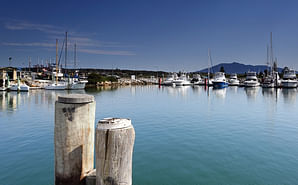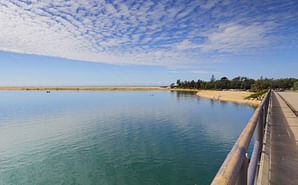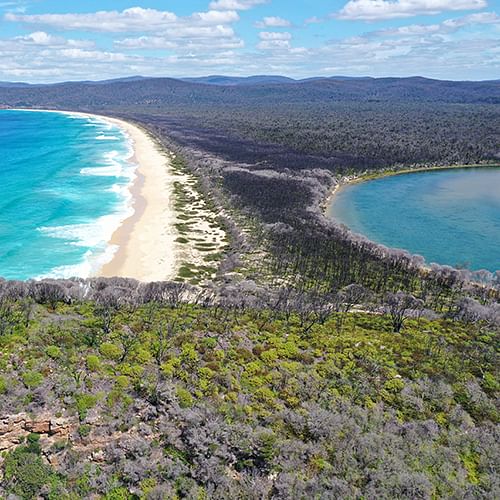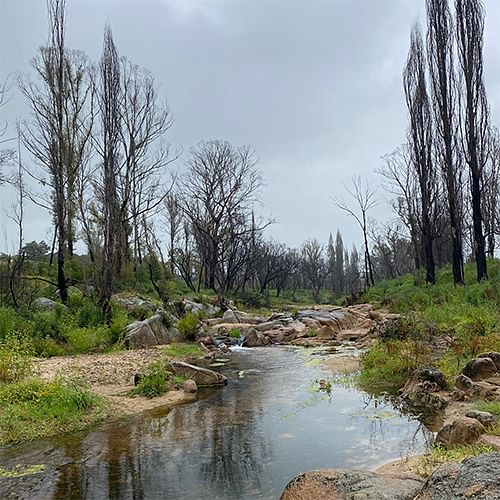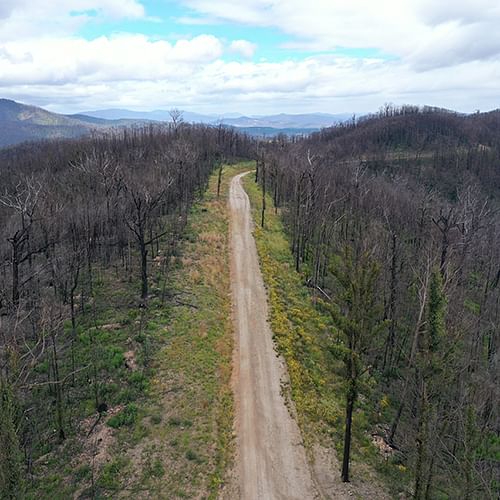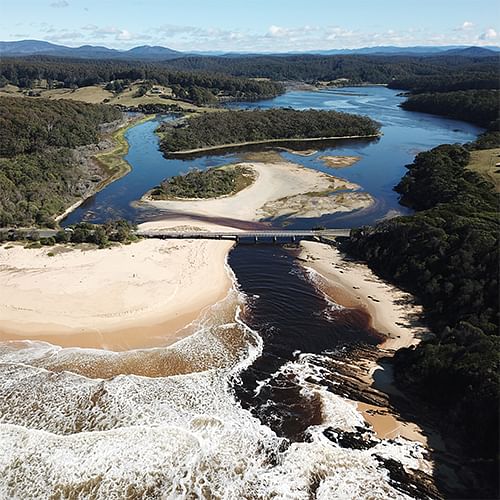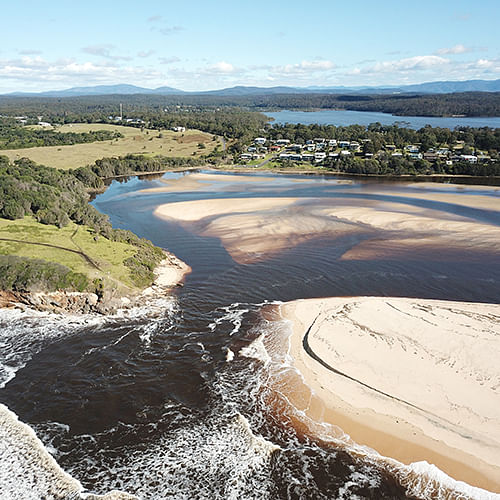Catchment Stabilisation & Estuarine Protection Project
Reducing post fire impacts on our estuaries through sediment and erosion controls and stabilisation works.
Bushfire recovery from an environmental perspective.
Project Summary/background
The Bega Valley Shire was heavily affected by fires which occurred in early 2020 with impacts seen across several catchments with approximately 4000km2 burnt. The bushfires have left large areas of foreshore and steep terrain devoid of groundcover and susceptible to erosion and weed invasion. There are significant risks to water quality due to increased rates of runoff and erosion resulting in increased turbidity, altered pH and reduced dissolved oxygen. These impacts will be exacerbated in the closed ICOLLS with flow on negative impacts to industry, tourism and recreational activity.
Council will undertake works across Wallaga Lake, Bermagui River, Cuttagee Lake, Murrah River, Bega River, Shadrachs River, Nullica River, Towamba River, Fisheries Creek and Wonboyn River.
This project aims to reduce post fire impacts on estuary health across the Bega Valley, initially through installation of sediment and erosion controls and bank stabilisation works. Habitat restoration works including weed control, revegetation and water quality monitoring is to be carried out over a three-year period.
Purpose
The extent of fire damage has resulted in large areas of bare forest floor covered in ash and debris, with no groundcover to help bind the soil. In large portions of these catchments, the terrain is steep and fire has burnt to the edge of rivers and the estuary foreshore in many areas. Significant impacts to water quality following bushfire are primarily due to increased rates of catchment runoff and erosion. Depending on the magnitude of the rainfall event, sediment and ash carried in runoff can result in increased turbidity, altered pH and reduced dissolved oxygen. Nutrients and metals bound in soils are also likely to be washed into the estuary and may be a concern. The effects of a significant rainfall event post-bushfire may result in detrimental impacts to seagrass communities due to sedimentation, a higher risk of fish kill due to reduced levels of dissolved oxygen, and elevated nutrient concentrations with potential to stimulate algal growth.
These works will help to protect the local environment by reducing inputs into the estuary, maintaining water quality and restoring habitat leading to long term sustainability of the estuaries.
Given the vulnerability of estuary systems and ICOLLs, it is essential for Council to implement these proposed works in order to reduce the risk of impact on, not only the health of estuaries, but the economic and social benefit these ecosystems provide.
Funding
The project is being funded from the NSW DPIE Coastal and Estuary Grants Program (Bushfire affected coastal waterways Program) and Council.
- $1,149 000 - NSW DPIE Coastal and Estuary Grants Program (Bushfire affected coastal waterways Program)
- $150,000 - Council has committed additional funds to the project
Connection to Council's Community Strategic Plan
This project is connect to Council's Community Strategic Plan through Outcome 3; Goal 5; Strategy 10.
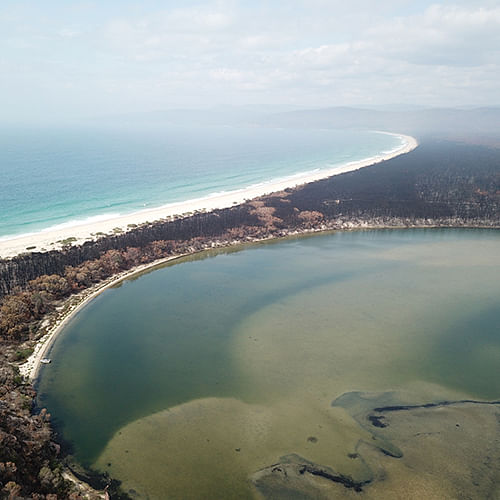
Funding Announcement
$5 million for bushfire affected areas
The NSW Government announces that $5 million will be distributed to six councils to ease the impact of the recent bushfires on coastal waterways.
Who to talk to:
Rachel Duczynski
Phone: (02) 6499 2179
Email: rduczynski@begavalley.nsw.gov.au
Timeline of works
-
Site Assessment
-
Installation of sediment and erosion controls
-
Commencement of water quality monitoring
-
Rehabilitation works (weeding & revegetation)
Frequently Asked Questions
As per the requirements of the grant, only fire impacted catchments were included. This does not include short term impacts associated with ash, only catchments that were directly burnt.
The project will run for three years.
Council also received funding ($427,281) via a joint application with Eurobodalla Shire Council and Shoalhaven City Council. This extra funding will be used to develop Catchment and Waterways Bushfire Recovery Plan to guide Councils rehabilitation works in years 2 and 3 of the project.
Towamba River Bushfire Recovery Works
Check out this video for an insight into the environmental bushfire recovery works being undertaken in the Towamba Catchment. This project was supported with funding from the NSW Governments Bushfire Affected Coastal Waterways Grant Program.
Sites for initial works
Council has identified locations for the first stage of works and prioritised sites which pose a high risk to estuary health. A key part of the project is the focus on sites in close proximity to town/village centres with the aim of helping recovery of residents and in areas which are safely accessible.
Visit our individual catchment pages to find out what the focus will be for each catchment.
News and Updates



